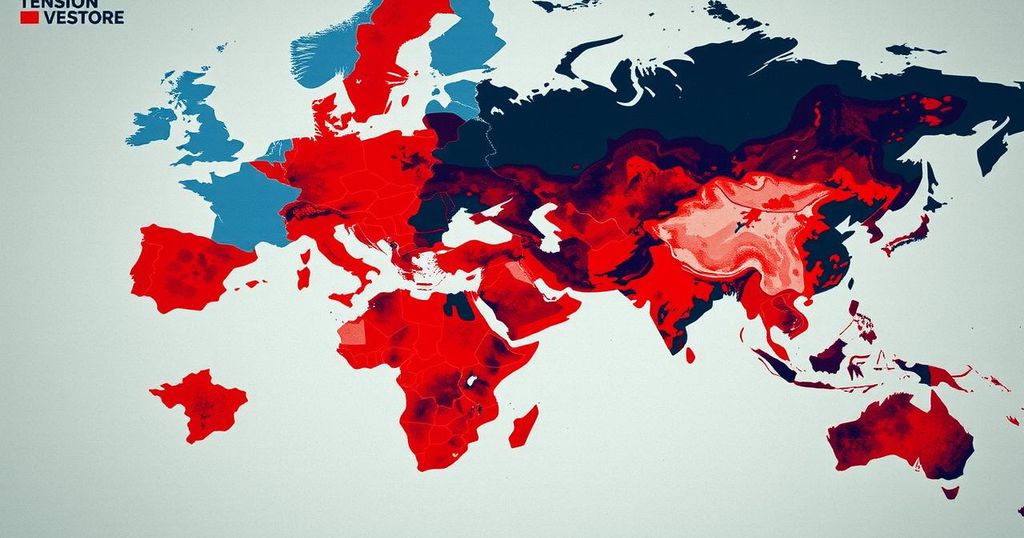The M23 militia, backed by Rwanda, has captured key cities in eastern DRC, indicating efforts to reshape regional governance. The militia’s resurgence is tied to local grievances and Rwanda’s security and economic interests. As tensions rise in Burundi and Uganda also navigates its own stakes, the humanitarian toll mounts. International pressure remains crucial but has yielded limited results for the DRC government.
In late January and early February, the M23 militia seized control of Goma and Bukavu, key cities in eastern Democratic Republic of Congo (DRC), marking a significant territorial gain. This Rwandan-backed rebel group is expanding its influence and establishing local governance amidst efforts to reshape the geopolitical landscape of Africa’s Great Lakes region.
Emerging in 2012 and briefly defeated in 2013 through international pressure on Rwanda, the M23 rebellion serves both to protect the Rwandophone community in eastern Congo and further Rwanda’s interests. The formation of the Alliance du Fleuve Congo (AFC), M23’s political wing, reflects this ambition, aiming for regime change in Kinshasa, the DRC’s capital.
The resurgence of M23 in November 2021 can be attributed to the Congolese government’s failure to fulfill promises to militia veterans, alongside Rwanda’s concerns regarding its influence in the area. Rwanda perceives the Democratic Front for the Liberation of Rwanda (FDLR), a rebel group tied to the 1994 Rwandan genocide, as a critical security threat, necessitating its support for M23 to secure its interests.
Rwanda’s interests further extend to economic factors, especially gold mining in eastern DRC, which constitutes a significant aspect of its economy. The expansion of military activities by neighboring countries has compelled Rwanda to use M23 as a proxy force to maintain its strategic position in the region, with estimates suggesting thousands of Rwandan troops present in the DRC.
The humanitarian consequences of the M23 offensive have been dire, displacing three million individuals and resulting in significant fatalities. Additionally, the prospect of an escalated regional conflict looms larger, with tensions intensifying in Burundi, where accusations of mutual support for rebel factions have led President Évariste Ndayishimiye to warn of impending war with Rwanda.
Moreover, Uganda’s interests in eastern DRC, particularly in gold, complicate the situation as it has provided support to M23 while simultaneously increasing its own military presence. This duality reflects the competing influences of both Rwanda and Uganda in the region, creating further instability.
President Felix Tshisekedi of the DRC is visibly losing control over the eastern territories, with declining army morale and the withdrawal of military support from Burundi marking the collapse of his strategic initiatives. Increasingly complex local socio-political tensions, fueled by a shared resentment towards Tshisekedi’s governance, are contributing to instability and a potential escalation of conflict.
US pressure played a key role in averting the initial M23 conflict. However, President Tshisekedi’s attempts to garner international support against Rwanda’s involvement have seen limited success, despite an array of strategic proposals offered to various global powers. While recent sanctions against Rwandan officials signal a semblance of progress, they may not be sufficient to compel Kigali to withdraw its support for M23.
The urgency for international action intensifies as the DRC government’s control wanes, with M23 asserting its presence and the threat of broader conflict in the Great Lakes region now more pronounced than ever. The delicate balance hinges on geopolitical maneuvers while the local populace suffers the consequences.
The M23 rebellion’s resurgence illustrates the complex interplay of regional interests, which has led to significant territorial gains and humanitarian crises in eastern DRC. Rwanda’s efforts to project power through M23 and Burundi’s rising tensions underscore the precarious nature of regional stability. International pressure has historically been effective in curbing conflict, and the urgency for renewed engagement is critical to avert a larger escalation.
Original Source: responsiblestatecraft.org




